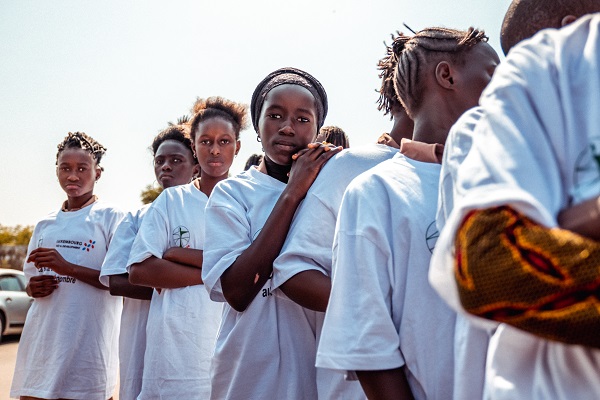 Credit: MAEE
Credit: MAEE
On Monday 17 and Tuesday 18 May 2021, the "Assises de la Coopération luxembourgeoise", a flagship conference bringing together all the players in Luxembourg's development cooperation programmes, took place for the first time in two years.
With the COVID-19 pandemic pushing the world into a health crisis, followed by an economic crisis and increasing poverty and hunger, years of progress in developing and emerging countries are at risk of being wiped out. Luxembourg's development cooperation programme has been able to react quickly and effectively through its development agency LuxDev, its multilateral partners and civil society.
“Nevertheless, great challenges persist”, specified Franz Fayot, Luxembourg's Minister for Development Cooperation and Humanitarian Affairs. “This is why we have chosen as the theme of the 2021 edition 'Towards a more innovative, more inclusive and more sustainable cooperation', in order to explore ways out of the crisis and to adapt our way of carrying out our development actions. In particular, we were able to present three new transversal strategies, in the fields of gender, environment and climate and inclusive and innovative finance”.
Gender equality and the empowerment of women is a fundamental right and a major prerequisite for achieving poverty eradication and sustainable development. Consequently, any future investment by Luxembourg's development cooperation programme will take into account gender equality and the empowerment of women in all sectors.
Climate and environmental crises are another major obstacle to poverty reduction, reinforcing gender inequalities in particular, and threatening to wipe out the positive results of decades of development cooperation.
Financing for development constitutes a third challenge. Minister Franz Fayot noted that, in synergy with the traditional sectors of intervention such as health, rural development or vocational training, strengthening the field of inclusive and innovative finance seems logical, by seeking to take advantage of the comparative advantage provided by the financial centre.
Meeting interconnected challenges also calls for the need to work in an even more transversal way, in order to ensure both the sustainability of cooperation activities, by contributing in particular to the socio-political and by generating new socio-economic opportunities, while at the same time bending the development trajectories of the countries of intervention in the light of these new parameters.
Beyond the presentation of these three new strategies, the "Assises" allowed those involved to hear the perspective of Susanna Moorehead, President of the Development Assistance Committee of the OECD on the concrete commitments that will have to be implemented to achieve the "build back better and greener" objectives. The Cercle de coopération des ONG de Développement de Luxembourg also organised a panel discussion on adjusting the working methods of development cooperation in the context of the post-COVID-19 crisis.








